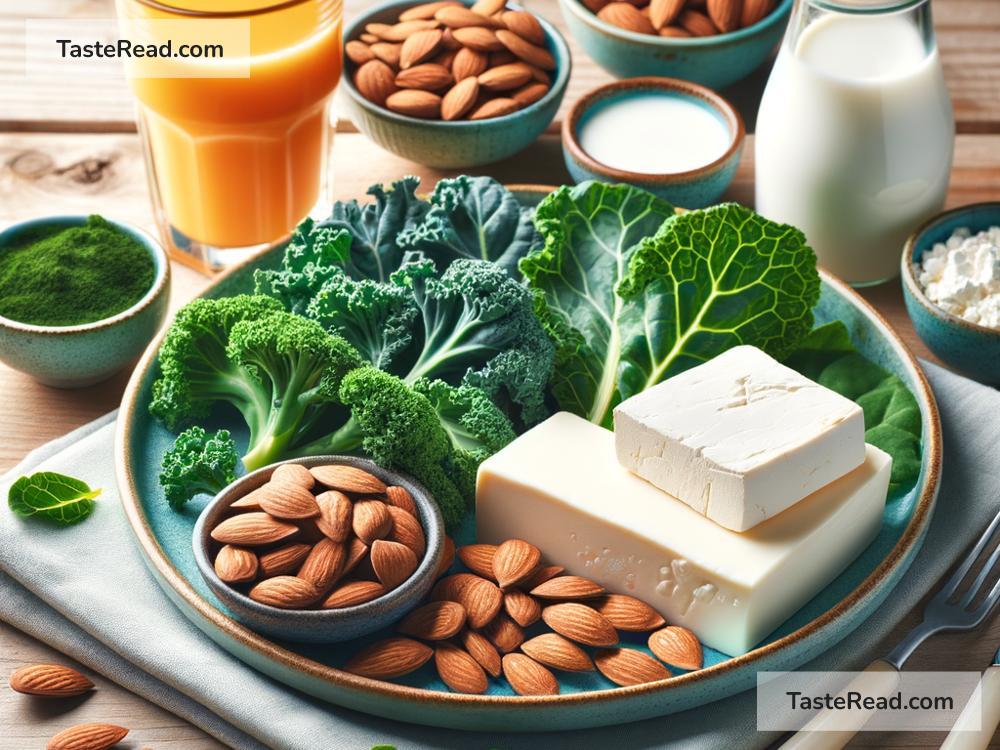The Role of Calcium in Bone Health: Building Strong Bones for Life
Have you ever heard someone say, “Drink your milk; it’s good for your bones”? That old saying has a lot of truth behind it. Calcium, a mineral found in foods like milk, yogurt, leafy greens, and fortified cereals, plays a major role in keeping your bones strong. Our bones act as the foundation of our body, supporting us as we run, jump, and even just sit in a chair. But without enough calcium, that foundation can weaken. Let’s dive deeper into the importance of calcium for your bone health and how you can make sure you’re getting enough in your daily life.
Calcium: What Is It and Why Does It Matter?
Calcium is an essential mineral that your body uses for many functions, including muscle movement, blood clotting, and nerve communication. One of its most important jobs, though, is keeping your bones strong and healthy. Bones are living tissue that constantly break down and rebuild. Calcium acts like building blocks for this process, giving your bones the strength they need to grow and repair themselves.
When you’re young, your body builds new bone tissue faster than it breaks old tissue down. This helps your bones grow larger and stronger. By the time you reach your late 20s or early 30s, your bones reach their peak strength, called “peak bone mass.” After this point, your body slows down its bone-building process. That’s why it’s so important to get enough calcium in your diet when you’re younger—to set a solid foundation for later in life.
What Happens If You Don’t Get Enough Calcium?
If you don’t get enough calcium, your body has to make hard choices. Since calcium is also necessary for other processes like muscle movement and nerve function, your body prioritizes those activities. If there isn’t enough calcium in your bloodstream for these purposes, your body pulls calcium reserves from your bones, making them weaker in the process.
Over time, a lack of calcium can lead to brittle bones, a condition known as osteoporosis. Osteoporosis makes your bones fragile and more likely to break from everyday activities. While osteoporosis is most common in older adults, especially women, the groundwork for avoiding it starts years earlier. By eating a calcium-rich diet and staying active throughout your life, you can help protect your bones and reduce your risk for this disease.
How Much Calcium Do You Need?
The amount of calcium you need depends on your age and stage of life. Here’s a general guideline:
- Children (4-8 years old): About 1,000 milligrams per day
- Pre-teens and teens (9-18 years old): About 1,300 milligrams per day
- Adults (19-50 years old): About 1,000 milligrams per day
- Women over 50 and men over 70: About 1,200 milligrams per day
If you’re unsure how much calcium you need or want personalized advice for your diet, it’s always a good idea to talk to your doctor.
Where Can You Get Calcium?
Calcium is found in many foods, so with a little planning, it’s easy to include it in your daily diet. Here are some great sources of calcium:
- Dairy products: Milk, cheese, and yogurt are some of the best sources of calcium. For example, a cup of milk has about 300 milligrams of calcium.
- Leafy greens: Vegetables like kale, spinach, and broccoli also contain calcium. While they may not have as much as dairy, they’re perfect for people who are lactose intolerant or avoid milk products.
- Fortified foods: Some foods, like certain cereals, orange juice, and plant-based milks (almond, soy, etc.), are fortified with calcium. Check the label to see how much they contain.
- Nuts and seeds: Almonds, sesame seeds, and chia seeds provide calcium, and they make great snacks or recipe additions.
In addition to food, calcium is available in supplement form. However, it’s usually best to get calcium from natural sources whenever possible. Your body absorbs it better when you eat calcium-rich foods.
Don’t Forget Vitamin D!
Calcium doesn’t work alone—it needs a partner, vitamin D, to do its job effectively. Vitamin D helps your body absorb calcium and use it in your bones. Without enough vitamin D, even if you eat plenty of calcium, your bones may not be as strong as they could be.
You can get vitamin D from sunlight (your skin makes it when exposed to sunlight) and foods like salmon, eggs, and fortified milk. In some cases, vitamins and supplements may be necessary to meet your needs.
Building Healthy Habits for Strong Bones
Strong bones don’t come from calcium alone—it’s part of a larger formula. Exercise is another big piece of the puzzle, especially weight-bearing activities like walking, running, and dancing. These kinds of exercises put healthy stress on your bones, encouraging them to grow stronger.
It’s also important to avoid things that weaken your bones, like smoking and excessive alcohol consumption. Both can harm your bone-building process over time.
Start Today!
No matter your age, it’s never too late—or too early—to start caring for your bones. By eating calcium-rich foods, getting enough vitamin D, and staying active, you can protect your bones and enjoy life to the fullest. Think of your bones like a long-term investment: the care you give them today will pay off for years to come. So drink that glass of milk, or grab a handful of almonds. Your bones will thank you!


